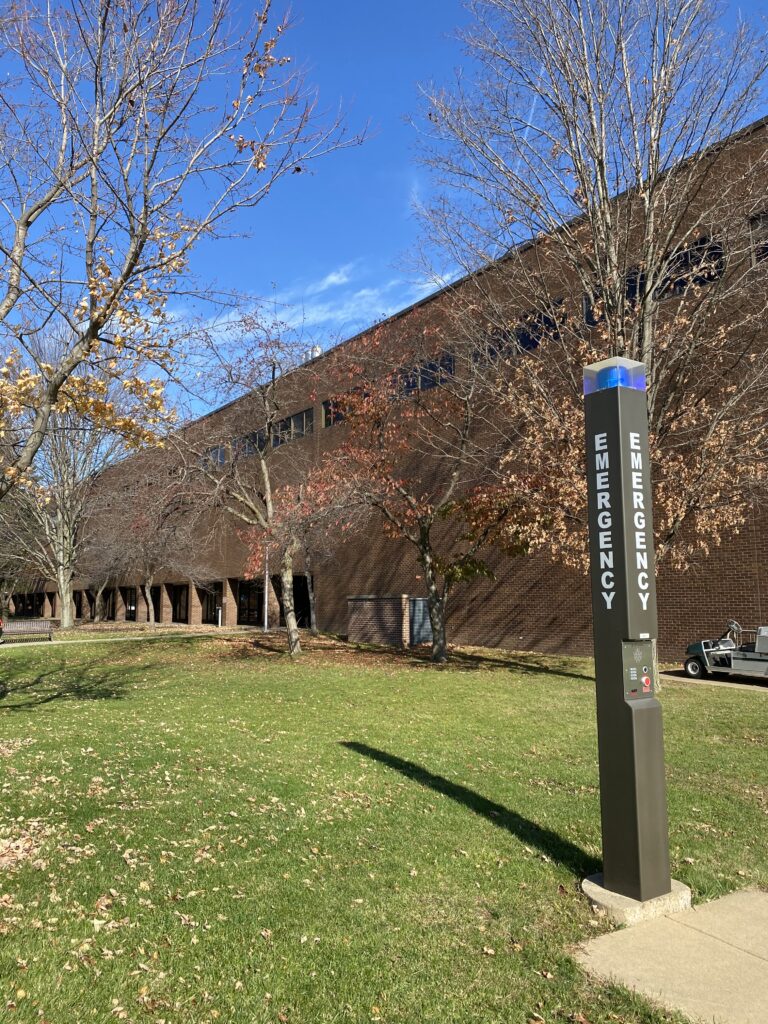ALYSSA BUMP
Editor in Chief
Social media is a place where people can often freely express themselves. But, when self-expression infringes upon the safety of others, action often has to be taken.
On the afternoon of Wednesday, Nov. 2, shockwaves were sent through SUNY Fredonia’s campus community after an anonymous threat was posted on social media. Many students were aware of the post by 2 p.m., and UP was spotted on the scene around 2 p.m.
It’s widely speculated that this post was made on Yik Yak, an anonymous social media platform that is used widely across campus. Although the original post has since been deleted, another Yik Yak post explaining the alleged threat spread online. That post read, “PSA: the yaks have been deleted but earlier there was someone claiming they were outside with a gun and looking to cause violence.”
At 2:46 p.m., Marketing and Communications sent an email to all students, faculty and staff on behalf of University Police regarding the matter.
This email, with the subject line “[Students] Social Media Post,” notified the campus community that UP was “aware of a social media post related to Thompson Hall that was posted this afternoon.”

Due to the nature of the post, UPD and Fredonia Police protected the exterior of Thompson Hall “out of an abundance of caution.” But the email informed students, in bold and underlined text, that “there is no credible threat,” and classes would continue as scheduled.
In a supplemental email sent by Marketing and Communications the same day at 5:11 p.m., University Police provided an update on the situation. In this email, UP said the social media post “conveyed a threat to Thompson Hall.”
The email once again acknowledged that these threats were deemed not credible, and classes continued while officers maintained a “heavy presence in and around Thompson Hall through the afternoon.”
The end of the message urged students to come forward with any information about the matter by contacting UP by phone, email or using the Silent Witness form.
The last communication from UP written by Chief Brent Isaacson was sent to the campus community via Marketing and Communications’ email on Nov. 3 at 10:06 a.m.
Isaacson said a student was charged with “Making a Terroristic Threat, a Class D felony.” The student was booked by UP and was subsequently released with an appearance ticket to appear in Fredonia Village Court. Because the student has since been declared persona non grata, the accused student is subject to arrest if they appear on SUNY Fredonia’s campus.
In this email, Isaacson reassured the community that after UP’s initial assessment of the situation, they were able to confirm there was “never a risk of physical violence during this incident.”
After these three emails were sent to the campus, The Leader reached out to Isaacson via email correspondence requesting a copy of UP’s police report, a copy of the charges filed against the accused and other information regarding the incident.
Although Isaacson said he was unable to release the police report “because the investigation is still ongoing,” he was able to confirm the charge against the accused is “Making a Terroristic Threat, in violation of New York State Penal Law, Section 490.20.”
UP will handle the investigation of the social media threat, and Isaacson said “the Chautauqua County District Attorney’s Office is handling the prosecution.” Therefore, the appearance ticket the accused received directs the student to appear in Fredonia Village Court.
Isaacson said he was also unable to identify who the accused student is on the basis of NYS Public Officers Law. He explained that the law allows law enforcement agencies to deny access to records that could “interfere with law enforcement investigations or judicial proceedings or deprive a person of a right to a fair trial or impartial adjudication.” He continued, “Those circumstances exist in the matter with respect to your request for a disclosure of ‘the police report.’”
However, a person The Leader contacted from the Chautauqua County District Attorney’s Office said it was under their understanding that administrative action was being taken against the student rather than criminal charges.
When The Leader reached back out to Isaacson for clarification he said, “Yes, criminal charges have been filed in court.”
He further explained that during situations like this concerning a student, two separate processes often occur.
“The first is the criminal prosecution in court,” Isaacson wrote. “The second is conduct charges against the student, which are processed through the Office of Student Conduct.”
Although the university does not handle criminal charges, Isaacson said criminal activity is investigated by UP.
This process is “fully authorized New York State law enforcement agency with the same authorities as any other police department in the state.” Isaacson also said, “If evidence of a crime is developed, UP charges defendants with crimes which are then prosecuted by the District Attorney’s Office in a court of law.”
The Leader will update this story once more information is available.
